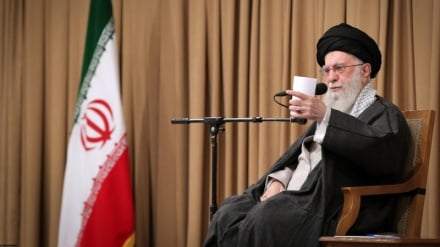International Women’s Day
March 8 has been named as the international women’s day. It is a good opportunity to review the situation of women in the world and investigate the future movements and the opportunities.
One of the issues highlighted for a few decades is gender equality which has been agreed upon by the world’s leaders as one of the most important third millennium development programs. Gender equality is a way of earning higher income, reducing child mortality, improving health, increasing productivity and helping develop. Due to the importance of this issue, from the early years of the 21st century, a number of objectives have been pursued such as women's education, empowerment of women as producers, paving the way for increasing women's participation in governmental posts and important political decisions. According to experts, despite the plans of the first two decades of the 21st century, most women continue to face serious gaps in many areas.
One of the most important long-term goals of the UN on gender equality and empowerment is the issue of women's education. According to experts of poor countries, for every year of women's elementary education, their income increases by an average of 10%, but there are still countries that have never been able to provide them equal access to educational opportunities. In many of these countries, gender discrimination and gender gaps are clearly visible from primary school. For example, in Chad only 55% of female students can continue their education at high school. Thus, Chad is called the poorest country in this respect. After Chad, the Ivory Coast, Pakistan and Yemen have the highest gender gap in terms of girls going to high school. Generally speaking, literacy as the most important educational achievement is very different between men and women in these countries. In Mali, only 25% of women are literate compared with 43% of men. In Chad, women's literacy rate is 28% compared to 47% among men. Women's low literacy rate in these countries has created problems for development. It is noteworthy that even in the so-called developed countries, despite the fact that women have surpassed in number in terms of entering universities and acquiring higher education, they continue to suffer from inequality when it comes to employment.
According to a comprehensive survey published in 2015, if women share an equal share with men in economy, $28 trillion or 26% will be added to the world's gross domestic product by 2025. This $28 trillion is equivalent to the US and Chinese gross domestic product combined. Statistics are indicative of the fact that women's economic empowerment is not only effective for women and family, but it has dramatic achievements for the economic development of society. Nevertheless, in the current circumstances, only 50% of women in the world are employed. While statistics show the presence of 77% of men in labor market. And those women who are employed, averagely, earn 24% less money compared with the men who do the same job with the same qualification and skill, especially in Asia, Africa and Latin America. They receive less wages and are deprived of social services, insurance and job opportunities for progress. Despite the propaganda hype of the western industrialized governments women are gripped with the same situation in many of these countries.
For example, in England, the average salary of employed women is much lower than that of men. Although in the last two decades this gap has become narrower, women often work in low paid jobs, and get less salaries than men in the same jobs. Female office workers in Britain earn 60% of their male colleagues' earnings, and saleswomen gain 57% of the money that men gain in the same job.
According to the estimation of global economic forum, given the current growth of women's economic participation it will take 81 years for women to have equal presence at workplace. This has forced the global community to reduce gender gaps in economic opportunities to bolster women's economic empowerment by 2030. Of course, achieving this goal depends on solving the bigger problem, namely violence which is enforced against women in most of the countries.
Shocking reports from around the world show violations of the basic rights of women, reflecting the bitter fact that violence against women has changed in form while in nature it is the same. This can be seen in the poll results of the Gallup Research Institute, which was published a while ago. The results of a study conducted in more than 160 countries, revealed that more than 2 billion women described their conditions of life as painful. Only a quarter of them (620 million) live in tolerable conditions. According to the Gallup poll, most women who describe their live as difficult live in the countries that are gripped with social, economic and security instability, such as Afghanistan, Greece and Ukraine. The point to note is that all of these countries are suffering from the unrest, chaos and bloodshed that have been instigated by the western regimes which champion as the defenders of human rights and women's rights.
In its latest report, while warning about violence against women, the World Health Organization announced that one out of three women faces domestic violence, and the notable point is that the magnitude of violence against women in the industrial countries is the same as (if not more than) poor countries. The results of 500 researches on violence against women confirm that the magnitude of violence that American women are exposed to is similar to the one carried out against women in Zimbabwe and Cambodia. This, while the US claims to be defender of women's rights, human rights and all those pompous words. The WHO has also warned about the violence enforced against women in wars and crises, especially sexual violence which brings about very bitter physical and psychological results for the victims to the extent that these poor women and girls cannot return to normal life and either commit suicide or lead a very pitiable life.
Despite the steps taken to combat rape as a form of warfare in wars and armed conflicts, we are still witnessing that sexual violence as a form of international crime keeps affecting women in over 20 war-ravaged and conflict-hit countries. The raping of Rohingya women and girls by savage militaries in Myanmar is an example of this bitter reality. African women have been victims of regional violence for many years. According to Africa Times, women and girls have been victims of sexual violence in this continent. The paper states that women in the Democratic Republic of Congo, Ivory Coast, South Sudan, Somalia and Central Africa are faced with sexual and physical violence in addition to poverty.
There are serious problems for the majority of women in the world. Violation of women's rights, barriers for women's political and economic participation and many discriminatory laws continue to hamper women's empowerment. UN Under-Secretary-General in women affairs Phumzile Mlambo-Ngcuka warned the member states and representatives of the Inter-parliamentary Union about the alarming slowdown in the process of women's empowerment and gender equality, and expressed concern that this extremely slow growth could create dangers and serious complications for the goals of the 21st century development plan.
According to experts, although from the beginning of the 21st century women's rights and their empowerment and gender equality have been considered, conditions and necessary preparations have been ignored for its materialization. In particular, presently there is no political support or will in the domain of women's rights and no adequate funding is allocated by governments. UN officials in women's affairs believe that if women's empowerment is prioritized in every country and the world leaders fulfil their promises and obligations made at the Beijing World Conference on Women in 1995, there is still hope that by 2030 the issue of gender equality and women's empowerment in the world will be realized.
In sum, it must be said that contemporary human being will never taste the sweetness of equality and justice for all unless he returns to God and the genuine teachings of divine messengers and gives up imperfect and decadent laws and rules set by corrupt minds.
FK/RM/ME


